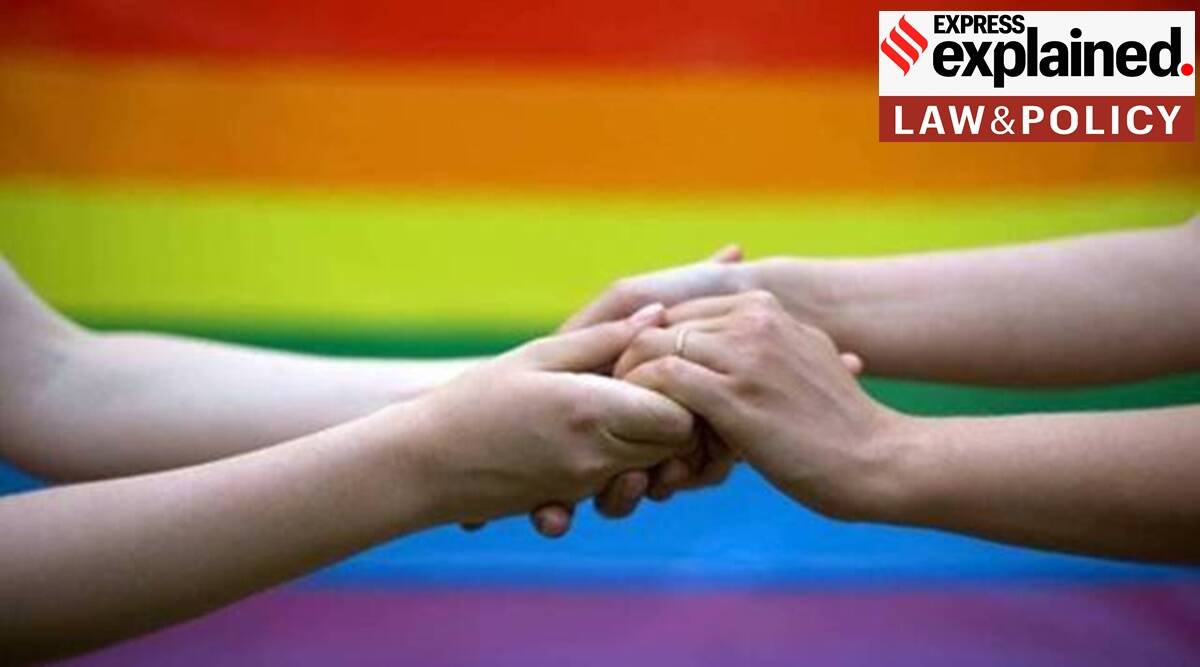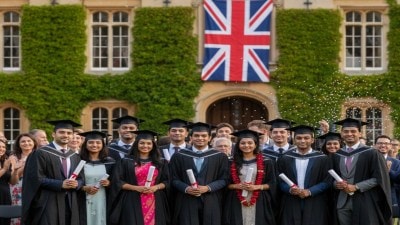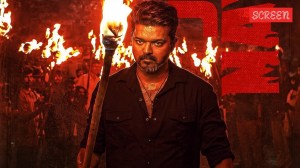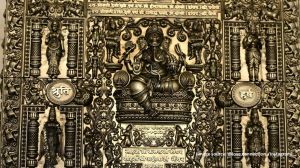The Supreme Court heard arguments on Thursday on behalf of the government from Solicitor General Tushar Mehta in the case seeking legal recognition of same sex marriage. While urging the Court to leave the issue to Parliament, Mehta argued that the law cannot be re-drafted again to allow same-sex marriage. Here are six key arguments of the Centre.

“It is essential to note that marriage, even under the so-called secular Special Marriage Act, 1954, originates in personal law. The said secular enactments were enacted not as a means to create a new social legal institution, but rather as a means to overcome some limitations of religious personal laws,” he said.
2. ‘Legitimate’ interest of state: Responding to the argument of the petitioners that the state can have no role in regulating personal relationships, Mehta argued that the state has a ‘legitimate’ interest in regulating marriage.
“The right to marry is not absolute and is always subject to the statutory regime provided by the competent legislature,” he argued.
He also cited several aspects of marriage which the state has regulated, such as age of consent to marriage, prohibition of bigamy, prescription of prohibited degrees of marriage (which means one can’t marry their lineal ascendants, such as parents, grandparents, etc.), judicial separation, and divorce.
“The state can claim legitimate interest to regulate, when to marry, how many times to marry, whom to marry, how to separate, etc.” the Centre argued.
Story continues below this ad
Mehta told the Court that if the petitioner’s argument were to be accepted, the law on bestiality or incest can also be challenged on the same grounds that the state cannot regulate personal relationships.
The Bench agreed with the Centre that an absolute statement that the state can have no interference in regulating personal relationships might not be correct. CJI DY Chandrachud in an oral observation gave the example of a parent-child relationship that is regulated by the state. “The state requires the child to be educated. The parent cannot say I have absolute control over the child,” he said.
3. The right to privacy: In the landmark 2017 decision recognising the right to privacy as a fundamental right, the Supreme Court had held that sexual orientation is an essential component of identity. “Equal protection demands protection of the identity of every individual without discrimination,” a concurring opinion by Justice Chandrachud had stated.
The Centre argued that while the right to privacy exists, it cannot be extended to marriage. When consulting adults want a societal acceptance of the relationship by way of marriage, the Centre argued that they are conferred with a public status by the state.
Story continues below this ad
“It is submitted that consenting sex between two adults is in the sphere of privacy within the intimate zone. However, recognising the relationship between the very same two individuals as marriage falling in the public zone has a necessary and inevitable public element,” Mehta said.
4. Parliament must decide: The Centre has repeatedly said that the decision on same-sex marriage can only be made in Parliament. The argument essentially is that there exists a democratic right of people to regulate themselves and that it cannot be mandated by a Court.
Mehta on April 26 had cited a string of rulings from the US Supreme Court, including the 2022 Dobbs v Jackson case, on the limits of judicial review. In the Dobbs ruling, the US Supreme Court held that abortion neither finds express mention in the US Constitution nor is deeply rooted in the nation’s history and tradition, and therefore cannot be a protected constitutional right.
The Centre also argued that the Court will be venturing into unknown arenas if it legislates on same-sex marriage, and that could raise several unintended consequences in law.
Story continues below this ad
“As per the information available in public domain, there are a total 72 categories of genders falling within the LGBTQIA+ community. This would mean several permutations and combinations of marriage and fact specific peculiar problems arising therefrom. It will be impossible for the Court to conceive all such permutations and combinations upon whom the socio-legal recognised relationship of marriage would be converted and provide for detailed mechanism/provision to deal with such situations,” the Centre argued.
5. Interpreting the law: The key argument of the Centre is that the Court cannot interpret the Special Marriage Act to include same-sex marriage in a meaningful way.
Mehta argued that the Court will have to examine the “entire architecture of the Act rather than examine a few words like husband, wife, etc.,” mentioning several instances where simply replacing the words wife and husband with person would not be compatible with the rest of the legislation.
Mehta cited instances where the law provides specific rights to a wife. For example, he argued that “the law says that the wife acquires the domicile of the husband upon marriage. So who will be the wife in a same-sex marriage?”
Story continues below this ad
Another example he cited was on the issue of divorce. Under the Special Marriage Act, a wife may seek divorce on the ground that her husband has, since solemnisation of the marriage, been guilty of rape, sodomy, or bestiality.
Mehta said, “This is a right specifically given to the wife. In case of a gay marriage who would get this right? The petitioners’ argument is that the court must allow both the parties to have this right. But there is a problem there… can the court allow a right to one party in a gay marriage and not to party in a heterosexual marriage?”
6. Effect on personal laws: The Centre argued that personal laws will inevitably be affected even if the Court only looks at the Special Marriage Act. Last week, before the arguments began, the Court made it clear that it will restrict the scope of the challenge only to secular laws and not religious laws.
However, Mehta argued that it might not be possible for the court to interpret the Special Marriage Act in isolation without touching personal laws. Under Section 19 of the Special Marriage Act, the parties married under the secular law lose their right to family property, although they will continue to be governed under their personal laws in all other aspects such as divorce, inheritance and adoption.








































